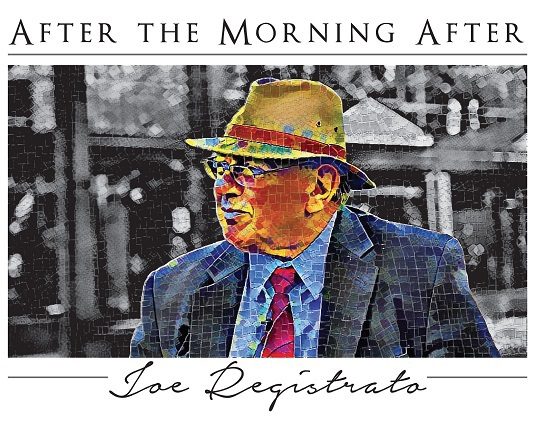
“The most effectual engines for [pacifying a nation] are the public papers… [A despotic] government always [keeps] a kind of standing army of newswriters who, without any regard to truth or to what should be like truth, [invent] and put into the papers whatever might serve the ministers. This suffices with the mass of the people who have no means of distinguishing the false from the true paragraphs of a newspaper.” –Thomas Jefferson to G. K. van Hogendorp, Oct. 13, 1785.
By Joe Registrato, Contributing Editor
So it turns out Thomas Jefferson, our third President, may have foreseen the recent “fake news” craziness by more than 200 years.
Jefferson said some other things about newspapers that ought to keep us on our toes. How about this one: “Our liberty cannot be guarded but by the freedom of the press, nor that be limited without danger of losing it.” –Thomas Jefferson to John Jay, 1786.
The more you read about Jefferson, the more you realize he thought the government simply could not and should not be trusted, and that it was important that newspapers provide a “watchdog” function.
Edmund Burke (1729 – 1797), a British politician, quoted in Thomas Carlyle’s book, “Heroes, Hero-Worship and The Heroic in History” (1841), coined the term “fourth estate” when he said that there were three Estates in Parliament, “but in the Reporters Gallery yonder, there sat a fourth Estate more important far than they all.”
If you believe I’m going on too long about the subject, it is only because in my heart, I’m preparing one of those obituaries you write in advance of the actual death, so that when the body finally succumbs, gives up the ghost as my father used to say, you’ve got your story written and you don’t have to scramble around on deadline. It’s just a matter of time, I’m afraid, before newspapers, the kind made of paper and printed on massive printing presses, go the way of the pay telephone, the vacuum tube and the manual typewriter. Newspapers, in the form we are accustomed to seeing them, are simply too expensive to produce and deliver, and have found it impossible to compete against the Internet, with its accessories such as YouTube and Craigslist.
The death of our beloved and valuable “watch dog” is a development I do not believe Jefferson could have anticipated. It scares me to the core, and should scare every democracy-loving person out there.
But wait a second, what about the Internet, cable television, Twitter and Facebook? Won’t they take the place of the daily newspaper?
Most of us old news guys think not, and I’ll tell you why.
One big thing is newspapers have to take responsibility for the “truth” of the information contained within. You can sue the publisher of the newspaper if the writers and editors get something wrong. Therefore, you can be pretty sure that newspapers such as The Tampa Bay Times or the old Tampa Tribune were going to take steps to make sure the content of the product was true.
Thanks to Congress, the same cannot be said of the Internet, which is mostly immune from the libel laws because of Section 230 of the Communication Decency Act.
This law means that the Internet is merely a “bulletin board,” which the whole world has access to and which employs no editors or fact checkers. There’s nobody checking on the truth of whatever messages are pinned up on the virtual corkboard.
If you want to post something on the Internet that is completely false and defamatory, the only person you can sue is the person who actually wrote the false message, not Google or any of the Internet Service Providers. So even if you can identify the author of the false message (which is highly unlikely), if he or she happens to be a 12-year-old with no assets, there’s not a lawyer in his right mind that’s going to be willing to file a libel suit because nobody’s going to get paid. The writer of the libelous message is what lawyers refer to as judgment proof.
There are plenty of other reasons why digital media and television aren’t going to be able to replace our newspapers. Another big one is local and state reporting. Old timers like our publisher remember a day when newspaper boxes from all over Florida stood guard in the capital building in Tallahassee, a symbolic eye on all those state representatives and senators who knew very well that an army of journalists from Miami, Tampa, St. Petersburg, Sarasota, Orlando, Daytona, Palm Beach, Jacksonville, Fort Lauderdale, Tallahassee and smaller burgs in between awaited them and would watch their every move. The Watch Dog was on duty.
The same is true of the old days in cities like Tampa and St. Petersburg, where live newspaper reporters were there to watch the meetings of every county commission, city council, and school board; every judge in every courtroom. The Watch Dog was on duty there, too.
Well, it’s a sad thing, but the Watch Dog is gone, those live reporters and photographers replaced by, well, nothing, not replaced at all.
Our newspapers just can’t afford to be the Watch Dogs they once were, and our democracy is in danger of losing its “fourth estate.”
Am I overreacting when I say the death of newspapers threatens the continued vitality of our democracy, our way of life?
Check out Post-Print Democracy: The Decline of Newspapers and The Effects On Political Information, Political Participation and Political Power by Juanita F. Clogston, who wrote this 189-page dissertation to get her Doctor of Philosophy degree at Johns Hopkins University.
“The loss of political information in the form of decreased local coverage of communities, including rural and small towns, threatens the watchdog role over small government, leading to greater likelihood of decreased government efficiency and more government corruption…The finding that papers in state capitals are at greater risk goes to the heart of Paul Starr’s (2009) concern that the watchdog role of the regional press is even more critical at the state level, where no one else is likely to step in when newspapers cut back…
“Additionally, the finding that papers with smaller circulations and those in rural counties are at greater risk heightens concern for less oversight of local government in small towns… The role that the media play in controlling corruption in state and local government is often one that is not seen when it is successful, but with the decline of newspapers and their watchdog function, government will be more prone to abuses that will then become apparent…
“When citizens lose knowledge of how they are governed and their voice at the ballot box is weakened, the political power they exercise is diminished.”
On September 24, 2009, The Hon. Carolyn B. Maloney, U. S. Rep. from New York, chairman of the Joint Economic Committee of the U. S. Congress, testified before the committee. She stated, “A recent study showed that when the Cincinnati Post shut its doors, voter turnout in local elections dropped. Without our newspapers we lack a critical uniting feature which fosters broad participation in our democracy and community.” At that same committee meeting, the Hon. Michael C. Burgess, U. S. Rep. from Texas, testified, “There is no question about the contribution of newspapers and journalism over the course of history, and even in my brief lifetime things like the Watergate, like Iran-Contra, probably would not have come to the surface of the public consciousness had it not been for dedicated journalists and dedicated newspapers and editors who were willing to listen to what the problems were…”
President Jefferson said some other things on the subject, one thing that I’ll always remember and agreed with was when he said, “Were it left to me to decide whether we should have a government without newspapers or newspapers without a government, I should not hesitate a moment to prefer the latter.”
I’ll end this pending obituary with one more: “The press [is] the only tocsin (which means alarm bell in Old French), of a nation. [When it] is completely silenced… all means of a general effort [are] taken away.” — Thomas Jefferson to Thomas Cooper, Nov 29, 1802
Joseph J. Registrato is a journalist and lawyer and writes the After The Morning After column for AliveTampaBay.com. He was a news reporter, assistant city editor, city editor and assistant managing editor of The Tampa Tribune from 1971 to 1987. After graduation from Stetson College of Law, he was admitted to the Florida Bar in 1989, and was an assistant state attorney with the Hillsborough County State Attorney’s Office from 1989 through 1991. He was in the private practice of law for more than twenty years in the areas of family law, criminal defense and appellate practice. He is now an assistant public defender at the Hillsborough County Public Defender’s Office of Julianne Holt. He is a U. S. Marine Corps veteran and served in the conflict in the Republic of Vietnam in 1968-1969. Registrato is a contributing editor of AliveTampaBay.com.

